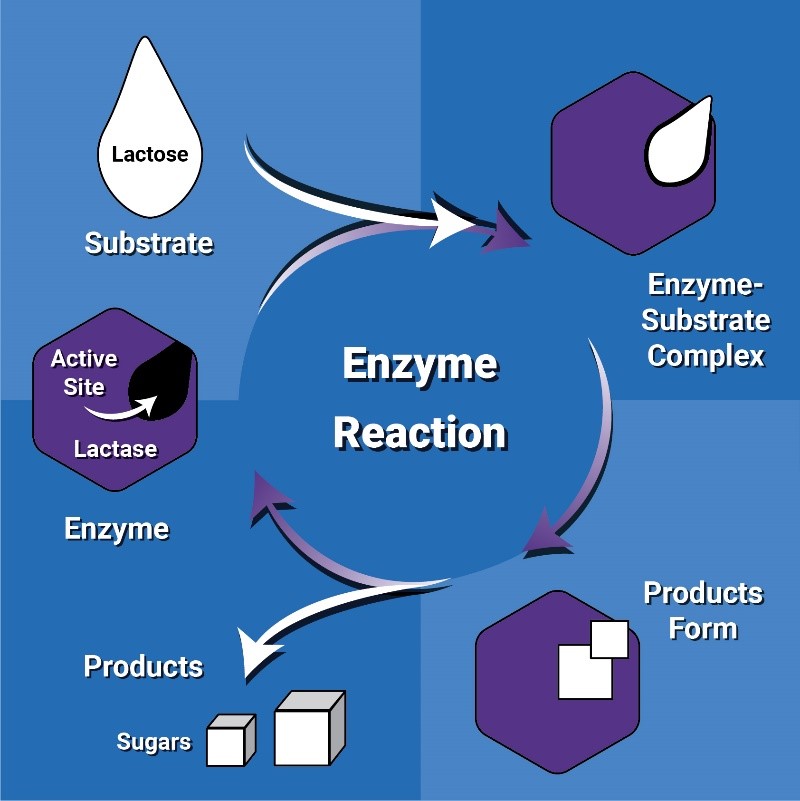Did you know that the lack of a single enzyme is responsible for lactose intolerance, a common condition that causes people to have trouble digesting milk? Fortunately, the enzyme is available in an over-the-counter pill for lactose-intolerant people who want to enjoy dairy products. Enzymes are molecules—almost always proteins—that speed up chemical reactions by reducing the amount of energy needed for the reactions to proceed. Without them, many processes in our bodies would essentially grind to a halt.
Some break down large molecules into their building blocks, while others combine small molecules into more complex ones. Lactase, the enzyme that lactose-intolerant people don’t produce enough of, breaks down lactose—a large sugar in milk—into two smaller sugars that the body can absorb. A molecule that an enzyme interacts with is called a substrate, which makes lactose the substrate for lactase.
 Lactase follows typical enzyme reaction steps to convert lactose into smaller sugars that the body can absorb. Credit: NIGMS. Click to enlarge
Lactase follows typical enzyme reaction steps to convert lactose into smaller sugars that the body can absorb. Credit: NIGMS. Click to enlarge
Each lactase molecule has a pocket called an active site that’s specially shaped to fit lactose and enables lactase to latch onto the sugar and break it apart. Other enzymes have active sites tailored to different substrates, which enable them to perform different tasks. For example:
- DNA polymerase helps build DNA molecules.
- Trypsin breaks down protein from food.
- ATP synthase plays a role in producing our cell’s main source of energy, adenosine triphosphate (ATP).
Enzymes withstand chemical reactions and can perform their tasks over and over again, sustaining life as we know it—and enabling us to enjoy delicious dairy treats like ice cream. Want to learn more about enzymes and other proteins? The Protein Data Bank (PDB)—celebrating their 50-year anniversary in 2021—offers PDB-101, an online portal for teachers, students, and the general public to promote exploration in the world of proteins and nucleic acids. Learning about the diverse shapes and functions of these biological macromolecules helps to understand all aspects of biomedicine and agriculture, from protein synthesis to health and disease and biological energy.

